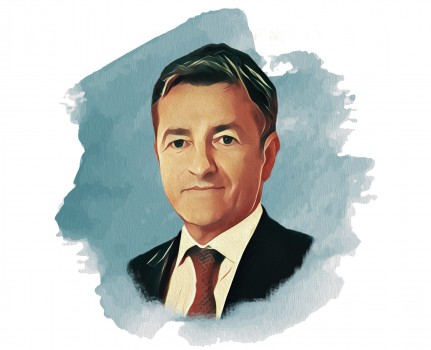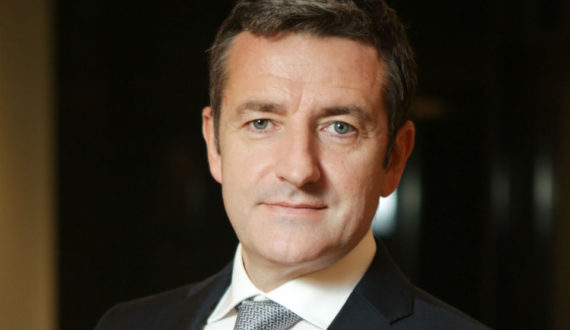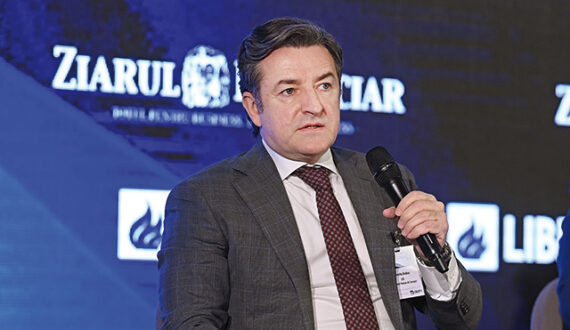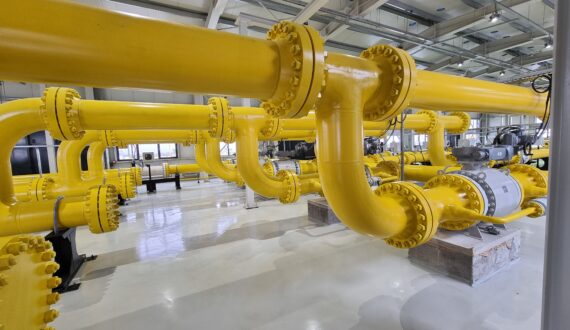Excerpt from the interview given by Mr. Corneliu Bodea, CEO of Adrem and President of CRE for e-nergia.ro
As we know, the Commission has a policy to decarbonise the energy sector as part of the larger Green Deal package. However, the energy transition has a relatively high cost for Romania, because we still have enough coal capacity. Do you think that Romania should receive more from the European Commission to support its energy transition? And how should they ask for more?
I believe that Romania is an example of good practice regarding the development of energy from renewable sources and I believe in our ability to align ourselves with European energy and climate goals. At the same time, the European Union’s goal of carbon neutrality by 2050, with a limitation of 55% of greenhouse gases by 2030, is extremely ambitious, and the conditions and limits imposed by the European Commission are severe.
The target imposed by the Taxonomy of 100 g CO2 / KWh for the generation of liquid and gaseous fossil fuels is well below the emission reduction value achieved by the best available technologies, and Romania is not prepared and cannot reasonably comply with these limits.
Here comes the very important role of our diplomacy in the debates in Brussels on the adaptation to European legislation and the approval of a transition calendar, starting from the energy reality of Romania. But I believe in our ability to correctly recognize the level we are starting from and to decide with confidence and courage for the benefit of industry and the end consumer.
Regarding coal capacities, as we see in the case of the Oltenia Energy Complex (CEO), which has been an element of stability for local communities and has historically ensured Romania’s energy security, solutions can be found to diversify generation capacities. and reprofessionalization of employees.
The CEO communicated a complex investment strategy for the next five years and let’s not forget that the situation of the companies in the generation sector is due to a problem of grouping them on fuel sources, which must be corrected as soon as possible.
The European Commission has made generous funding available to Member States to make the transition to a low-carbon economy. However, as in the case of many European funding programs, from pre-accession to operational and research-innovation-development programs, Romania has registered deficiencies in the absorption of these funds, as well as a weak institutional capacity to implement partnerships with the environment. Business.
The issue of lack of competitiveness in the electricity generation sector can be solved, but even if it takes time, it must be addressed in the end. The alternative is that, every year, we highlight the same deficiencies and shortcomings, rhetoric that must stop. We are seeing higher and higher prices, as well as the reversal of the import-export balance, Romania “solidifying” in 2020 for the second consecutive year the status of net energy importer. Romania’s external competitiveness requires a strong internal environment, which must be the cornerstone of national policies and the interests of an integral political class.
The installed capacity on coal represents, according to ANRE statistics, over 23% of the total installed. However, we note that in 2020, coal provided about 17% of total electricity production. Thus, nature follows its natural course, and the share of coal in the production basket will gradually decrease, regardless of national or European policies. Doing the same things, but expecting different results, is Einstein’s very inspired definition of madness.
Moreover, decarbonisation policy should be coupled with measures to increase energy efficiency. There are studies according to which 1MW saved per user is equivalent to 3-4 MW per producer, so energy efficiency can have huge results on modernizing the production sector and limiting greenhouse gas emissions.
Beyond what we might ask others, at home do you think that, at the level of government policies, enough is being done to change the energy mix to a greener one? We know there are plans, but the situation on the ground is not encouraging at all – a new MW has not been installed in the wind farm for years, for example
I believe that the optimization together with the modernization of the field of electricity generation, which is an integral part of the national economy, should be on the short list of priorities of the Romanian authorities. The organization of producers in companies on the principle of the production method made no real competition, they had no reason to invest and become more efficient, and Romania consequently became a net importer of energy.
The increase of the price for electricity and production is an important problem as we have seen in the last two years and let’s not forget that in 2020 Romania presented among the highest prices in the coupling mechanism 4 MMC (Romania, Hungary, Czech Republic and Slovakia) .
Romania has never lacked investors, what it lacked was the creation of a framework to encourage and support them. We know the evolution and many changes of the support scheme through green certificates, and the big investment projects in new production units or in the capitalization of domestic resources are dragging on.
We urgently need to implement PPA contracts, which would give investors long-term confidence and eliminate the need for state involvement and the need for public funding support schemes. Last but not least, public-private partnerships can unlock major investment projects across the economic spectrum.
Everyone is aware that it is the last year for Romania to make a decision on the extraction of gas from the Black Sea, if it wants to use this resource to generate electricity, at least. Do you expect us to have a favorable decision for these resources this year, after a long period of inaction? Do you think that the role of gas in our energy transition has been overestimated in the conditions in which the cost of emissions continues to increase and it is possible that in 10-15 years gas will be the coal of today? What should I do?
Natural gas is certainly the European Union’s transition fuel, but this window can close if we fail to seize the huge opportunity that the Black Sea represents.
In this context, I believe that the exploitation of Black Sea gas should begin as soon as possible, including in terms of the reconstruction of the petrochemical industry. We expect the offshore law to be amended this year, as stated by Energy Minister Virgil Popescu. Subsequently, according to Mrs. Christina Verchere, it takes up to 5 years for the actual exploitation. Projects of this size require considerable time from decision to operation, so we are already in the 12th hour. What is important is what we have already said, the political class must quickly define its long-term national strategy, define a clear way of working and timing, and carefully select its partners.
Read the whole article on e-nergia.ro
Romania cannot meet the 100g C02 / kWh target imposed by the taxonomy. It is far below what the best available technologies can achieve.







